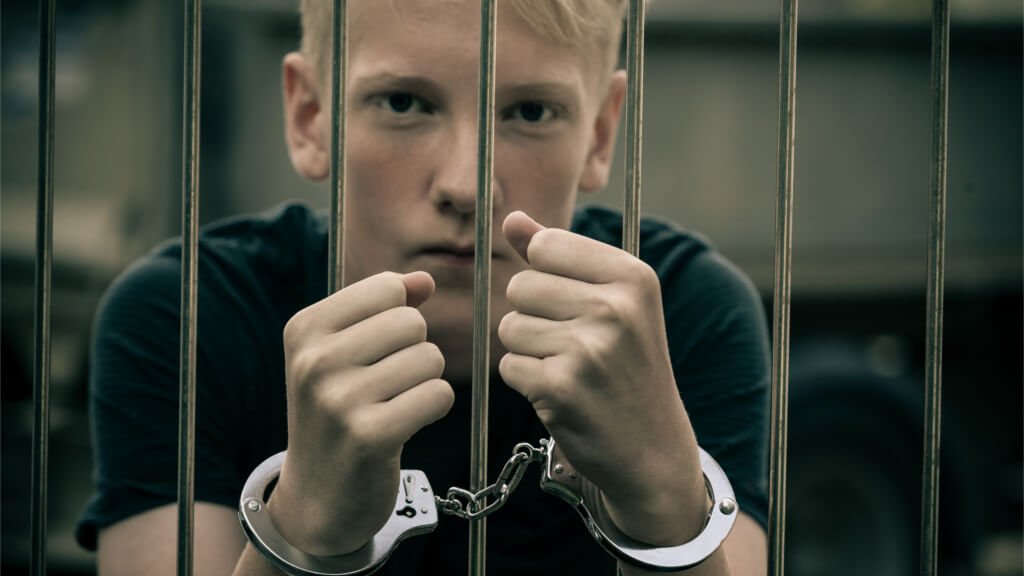When a child is accused of a crime, it can feel like your world is turned upside down. The uncertainty, fear, and stress that follow are overwhelming for any parent. In Florida, juvenile offenses are treated differently from adult crimes but that doesn’t mean the consequences are minor.
Whether your child has been arrested or is under investigation, understanding how Florida’s juvenile justice system works can help you take informed steps to protect their rights and future. Consulting with an experienced criminal defense attorney in Florida can provide the guidance you need to navigate the process and advocate for the best possible outcome for your child.

📍 For Guidance in Fort Pierce, Florida
Office Address: 130 S Indian River Dr, Suite 202, Office 218, Fort Pierce, FL 34950
📞 Call: 772-828-1143
📧 Email: info@jordizaragoza.com
What Is a Juvenile Crime in Florida?
In Florida, anyone under the age of 18 is generally considered a juvenile for legal purposes. When a minor is accused of violating the law, the case is typically handled through the juvenile justice system, which focuses more on rehabilitation than punishment.
Juvenile crimes can range from minor infractions to serious felonies, including:
- Theft or shoplifting
- Vandalism
- Underage drinking or drug possession
- Assault or battery
- Trespassing
- Burglary
- Cybercrime or harassment
- Weapons charges
While the goal is to help young people get back on track, the outcome of a juvenile case can still carry serious consequences both legally and socially.
How Is the Juvenile Justice System Different?
The juvenile system in Florida is built on the idea that minors have the potential for rehabilitation and should not always be punished in the same way as adults. Key differences include:
- No jury trials: Judges make the final decision.
- More focus on counseling, education, and rehabilitation
- Sealed records in some cases to prevent long-term harm
- Different terminology
That said, juveniles can still face detention, probation, community service, and even be charged as adults in certain situations.
Can a Minor Be Tried as an Adult in Florida?
Yes. In Florida, prosecutors have broad authority to “direct file” juvenile cases in adult court. This often happens in cases involving:
- Violent crimes
- Use of firearms
- Repeat offenses
- Serious felonies like robbery or sexual assault
When a juvenile is tried as an adult, they face adult juvenile in florida, including long prison terms and permanent criminal records. This is why early legal intervention is critical.
What Are the Penalties for Juvenile Offenses?
Florida law allows for a range of responses to juvenile offenses, depending on the severity of the crime and the minor’s prior record. Possible outcomes include:
- Informal diversion programs (no court appearance)
- Probation and counseling
- Restitution or community service
- Detention in a juvenile facility
- Commitment to a residential program
- Placement under home supervision
Some offenses may result in school suspension, loss of driving privileges, or mandatory educational courses.
What Should Parents Do If Their Child Is Arrested?
If your child is arrested, it’s important to stay calm and act quickly:
- Stay Informed: Ask for details of the charge and where your child is being held.
- Do Not Encourage Talking: Tell your child to remain silent until legal counsel is present.
- Attend All Hearings: Parents are typically required to attend court dates.
- Keep Records: Save any paperwork or communication received from law enforcement or the court.
- Seek Legal Guidance: Juvenile cases move quickly. Legal representation can protect your child’s rights and explore all available options.
Can a Juvenile Record Be Expunged in Florida?
Yes, under certain conditions. Juvenile records in Florida are automatically expunged at age 21—or age 26 if the individual was committed to a juvenile facility. However, earlier expungement may be possible if:
- The minor completed a diversion program
- The case was dismissed or not filed
- There were no subsequent convictions
A sealed or expunged record can make a significant difference in a young person’s ability to apply for college, scholarships, housing, or jobs.
Why Early Legal Help Matters
Juvenile cases in Florida are processed swiftly sometimes in a matter of weeks. Without a solid legal defense or awareness of alternatives like diversion programs, families may miss the chance to:
- Reduce charges
- Avoid adjudication
- Prevent long-term consequences
- Keep the child’s record clean
Navigating the juvenile system alone can be difficult. A well informed strategy can change the course of a young person’s life for the better.
Guidance When You Need It Most
Every child deserves the chance to learn from their mistakes without being defined by them forever. If your child is facing criminal charges in Florida, understanding your rights and options is the first step toward moving forward.
📍 Address: 130 S Indian River Dr, Suite 202 Office 218, Fort Pierce, FL 34950
📞 Phone: +1 772-828-1143
📧 Email: info@jordizaragoza.com
FAQs
Q1: Will my child have a permanent criminal record after a juvenile conviction in Florida?
A: Not necessarily. Many juvenile records are automatically expunged by age 21 or 26, and some may qualify for early expungement if diversion programs are successfully completed.
Q2: What if my child is charged with a felony?
A: Felony-level juvenile charges can lead to more serious consequences, including commitment to a facility or even transfer to adult court, depending on the case details.
Q3: Can my child avoid court altogether?
A: In some cases, yes. First-time offenders or those facing low-level charges may qualify for diversion programs, which allow them to complete requirements without going to trial or receiving a formal record.
